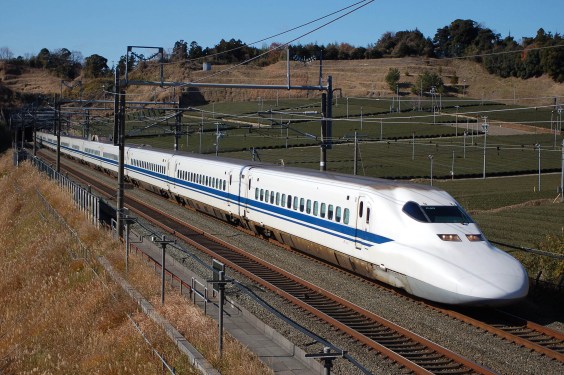In a lean season for in-depth transportation debate, the Virginia gubernatorial contest -- won this week by Republican Bob McDonnell -- became a proving ground for nationally relevant questions about how to manage the infrastructure of congestion-plagued but still-growing metro areas.
 Virginia Gov.-elect McDonnell (R) at his first press conference yesterday. (Photo: Virginian-Pilot)
Virginia Gov.-elect McDonnell (R) at his first press conference yesterday. (Photo: Virginian-Pilot)Which makes Robert McCartney's Washington Post Metro column today worth a read, even for those outside of the D.C. area. McCartney begins with the premise that Northern Virginia, which chose McDonnell after trending Democratic for more than a decade, has earned some "payback" from the governor-elect.
What's the first item on McCartney's list? Sadly, it's "Find money for roads." He seems to be using the "road" frame even to refer to transit projects:
McDonnell should lock in dedicated funding for the Metrorail system andensure that the Silver Line is built to Dulles Airport and beyond. Heshould add the proposed high-occupancy toll (HOT) lanes on interstates395 and 95. He should do something for I-66, too, although admittedlyour region is sharply divided on whether to widen it inside theBeltway.
In fact, the region is just as sharply divided over whether to add HOT lanes to those two highway, a project that was put on hold in August and faces legal threats from local residents.
As David Alpert has observed, there's a big difference between constructing new HOT lanes (which ultimately encourages more congestion and has yet to pay for itself) and converting existing lanes to variable tolling (which has shown it can make money). McCartney's column makes no attempt to acknowledge that distinction.
On the subject of Metrorail, the nation's only transit system without a dedicated revenue stream, McDonnell's transport plan is mum about the importance of making sure the federal government follows through on its recent authorization of $150 million in annual matching funds.
Meanwhile, the White House budget for next year did not include money for Metrorail -- Congress later added the money, but the bill has yet to be signed into law. McCartney's urging that the governor-elect "lock in" dedicated transit money is a sound one, but it makes one wonder why the Post waited until after Election Day to press the issue.





